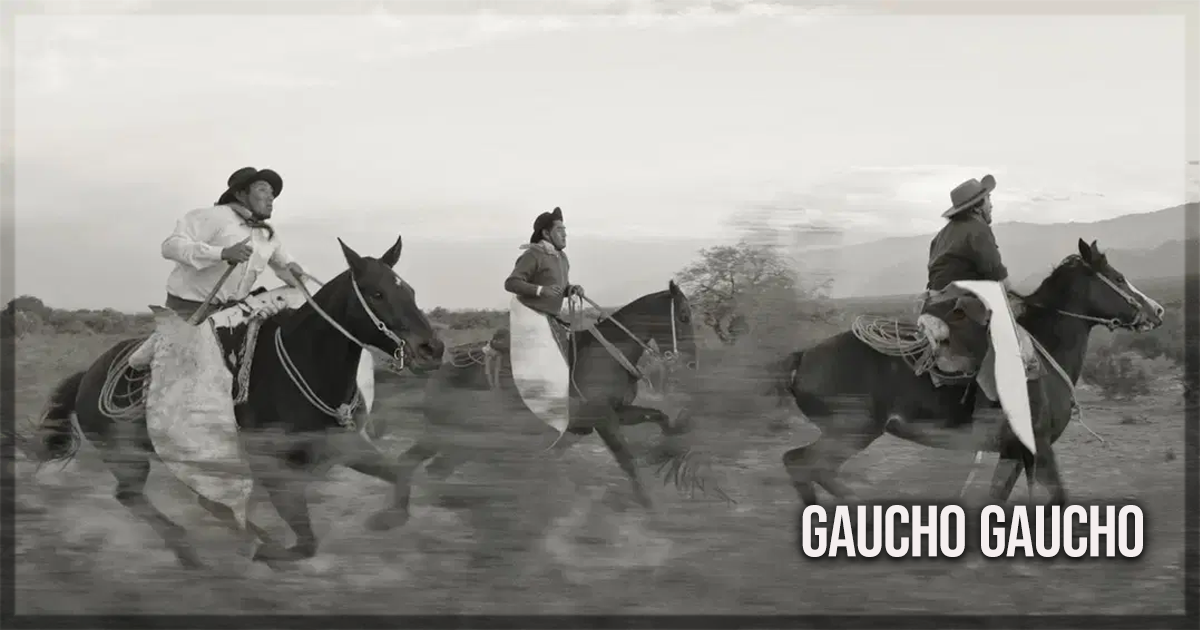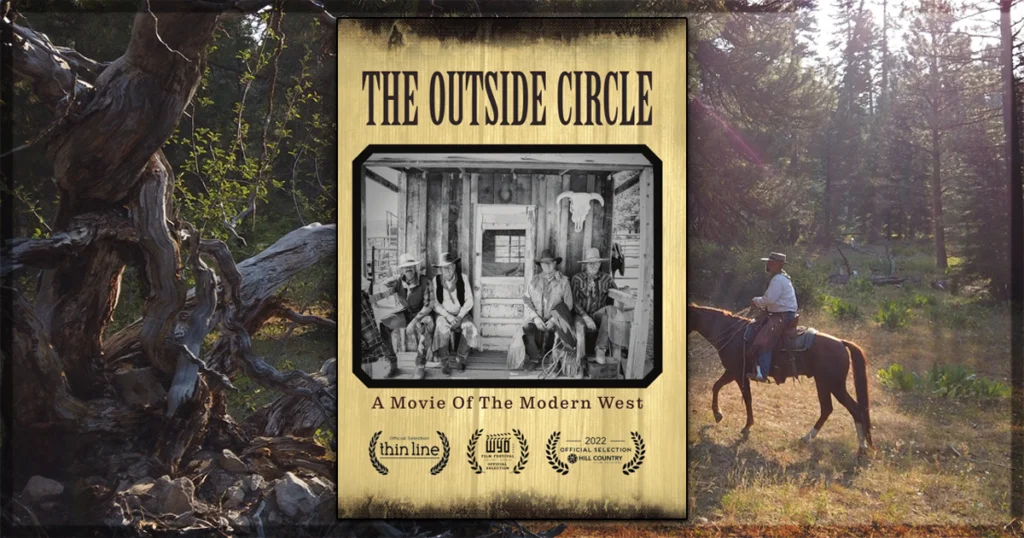The gauchos are cowboys and cowgirls living traditionally in South America. Their values as a community are to live respectfully in harmony with nature. In the late stage of capitalism, where financial institutions and capital are the focus of humanity, the Gauchos look back at the root of their history but also look forward to a new possibility of living both realities. Observing a specific group of Argentinian cowboys in a remote area of the country, directors Michael Dweck and Gregory Kershaw explore the unknown again with Gaucho Gaucho. In 2020, their highly celebrated The Truffle Hunters would analyze a group of senior men and their dogs chasing truffles, a rare and expensive ingredient. The film, aligned with the pandemic context, and the director’s ability to shine an empathetic approach to the subjects made a splash in the non-fiction community, garnering a mention for Best Documentary Feature in the 93rd Academy Awards shortlist.
Four years later, Dweck and Kershaw return to the peripheries of the globes to understand motives. In a flowy narrative style, Gaucho Gaucho does not feature the typical talking head interviews to compose a thread of thoughts. Instead, it uses nature as a guiding force, and the cameras follow the horses and their riders. The directors, who also sign the cinematography, use the perspective as an immersion tool. The camera is the same height as the horserider and moves in the same direction. This decision provides a rhythm to the rides as the cameras bounce and race alongside the horses. They understand the camera as a narrative approach to portray the nature of the Gauchos, allowing the directors to dive into that universe. There is a texture to their black-and-white cinematography, composing beautiful frames with the leather in their boots or the skin of the horses. Dweck comes from inspiration from his work as a plastic artist, and alongside Kershaw’s ideas, they deliver an hour and thirty minutes of painting.
Regarding its nearly free-form narrative, there is an organized cord of moments through their routine. The viewer follows the lacing of the cattle, a familiar barbecue of the local crop, or the rodeo events that mobilize the whole community. The film circles the microcosmos of the mundane while it shows the clashes of the modern with the traditional. Local radio has a Gaucho as a host who plays 1950s Argentinian tango classics, an encounter of the past with the present. It constantly reinforces the dichotomy in time, which is a mere anecdote for them. One of the Gauchas, the feminine word for cowgirl in Spanish, demands the right to represent her roots in her school, while all of her colleagues wear white shirts with skirts, but she is in a hat, jeans, and boots. All objects, motivations, and conversations spark pride in being who they are. The title, Gaucho Gaucho, means to be a true cowboy. It is more than riding horses. It implies respecting nature and all those who came before you. Also, it suggests the necessity of understanding your role in your community and working towards the common goal of protecting it from the vanishment of the constant modernization of the world.
In the film, through its experiments with the imagery, the directors operated high-speed cameras to grip the viewer in the motions of those activities. In this sense, it has an astounding use of sound and score to provide a sensory experience. The process of filtering songs of multiple ages and adapting them to fit the overall tone proposes an experience that arises to the viewer in each frame. Its tangos with contemporary Argentinian pop and orchestral excerpts form a cohesive musical body. The riding sequences in the desert are reminiscent of the most memorable scenes of classical Fordian westerns. The framing, combined with the correct musical choice, creates a grand sense of epicness that grabs the audience’s attention. Once the film follows an observational method and the directors’ interferences are in the editing, not in the filming process, the editing elevates moments of contemplative passages to impress with its directing choices.
Gaucho Gaucho is an intensely immersive observational documentary that invites the audience to meet the Argentinian gauchos. Michael Dweck and Gregory Kershaw direct the film, looking for the best combination of framing with sound, leading to an utterly beautiful combination of cinematic media. Their study of Argentina’s inner community of Gauchos is a compelling love letter to the traditions and honors of those who established the culture. It may lose steam in its contemplation, but there is always something new to admire.
Gaucho Gaucho is now streaming on JOLT.
Learn more about the film, including how to watch, at the official website.


